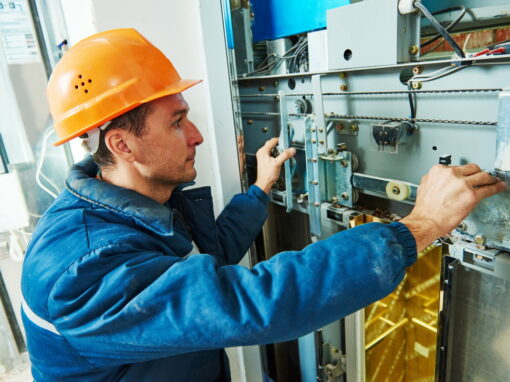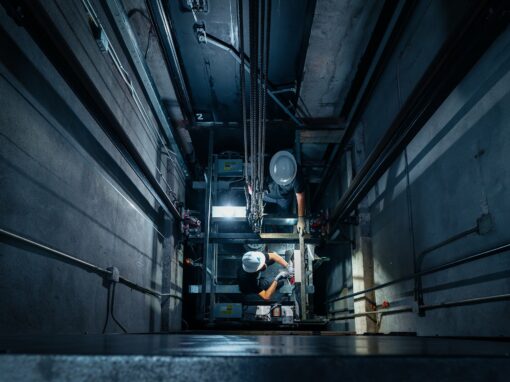Maintaining an elevator involves regular inspections and timely repairs to keep it operating reliably and effectively. But how often does an elevator need maintenance? There is no one correct answer, but general factors influence the maintenance schedule of an elevator, including its usage, age and the environment in which it operates.
In this blog, we’ll explore what goes into maintaining an elevator, from routine checks to component replacements, helping you understand the best practices that prevent breakdowns and extend the elevator’s operational life. Discover the specifics of elevator care as we discuss the ideal maintenance frequency to ensure optimal performance and compliance.
What Can Happen Without Proper Elevator Maintenance?
Neglecting elevator maintenance can lead to various issues, from increased operational costs to serious safety risks. Below are a few consequences of inadequate elevator care:
- Increased Failures and Costs: Elevators, especially frequently used ones, are susceptible to wear and tear. Regular maintenance helps identify potential issues before they lead to major malfunctions. Without it, you could face costly repairs and extended downtime, which disrupt daily operations.
- Safety Hazards: A well-maintained elevator is crucial for passenger safety. Lack of proper care can lead to potential accidents. These incidents pose a risk to user safety, can result in hefty legal penalties and even damage your property’s reputation.
- Shortened Equipment Life: Continuous operation without regular checks and maintenance accelerates the deterioration of elevator components. This can lead to the need for premature replacement of parts or the entire system, which can be significantly more expensive than routine upkeep.
- Operational Inefficiencies: Unmaintained elevators run less efficiently, leading to higher energy costs and reduced performance.
- Regulatory Non-Compliance: Elevators are subject to various state-mandated safety regulations and standards. Failure to adhere to these can result in violations, fines and even legal action. Regular maintenance ensures that your elevators comply with and operate within the legal requirements, helping you avoid potential regulatory troubles.
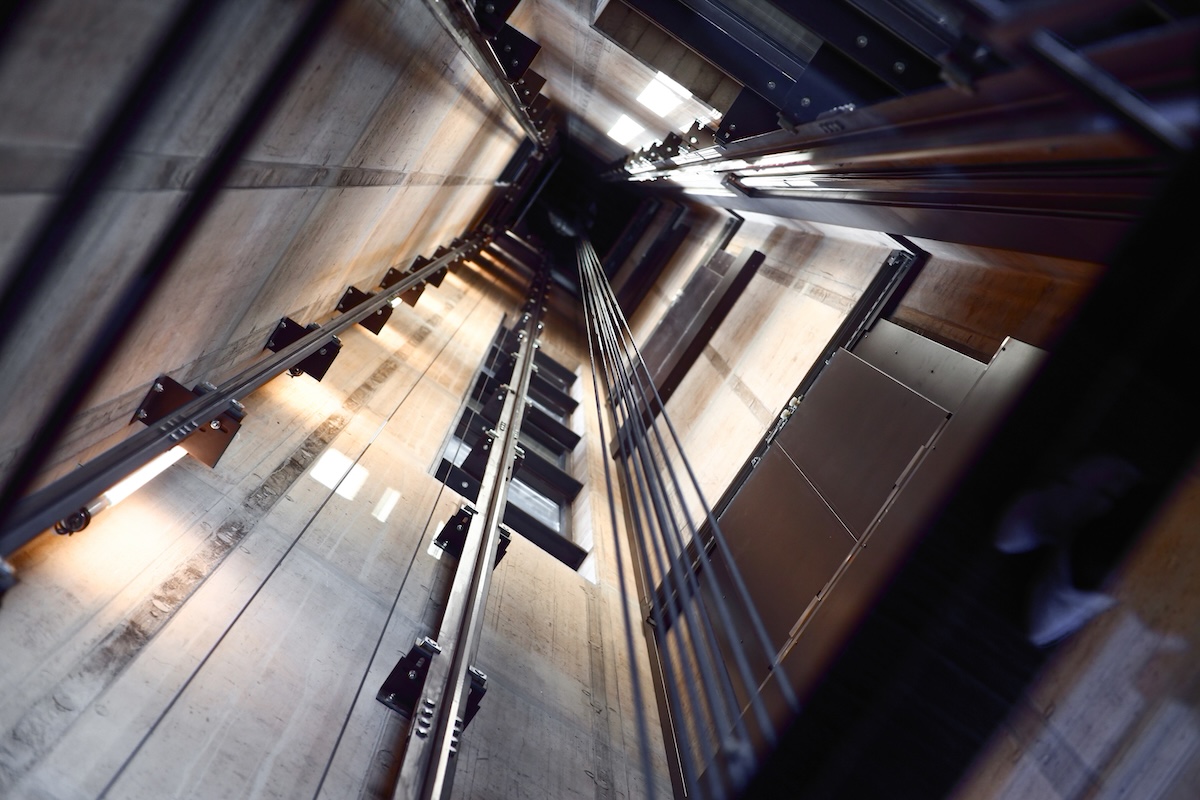
What Are Signs an Elevator Needs Maintenance?
Proper maintenance is necessary for the safe and efficient operation of elevators. Recognizing the signs that an elevator needs maintenance helps prevent costly repairs and ensures the safety and satisfaction of its users. Below are several indicators that an elevator requires attention:
- Misleveled Stops: A noticeable difference between the elevator floor and the building floor poses a tripping hazard and signals a need for adjustment.
- Unusual Noises: Mechanical sounds such as loud clunking, squeaking, thudding or banging during operation suggest underlying issues that need immediate attention.
- Reduced Speed: An elevator that moves more slowly than usual might suffer from mechanical fatigue or other issues requiring a professional evaluation.
- Frequent Breakdowns: Regular malfunctions and the constant need for “out of order” signs indicate that the elevator is not properly maintained.
- Scratches on Doors: Horizontal scratches on elevator doors suggest misalignment, which, while initially cosmetic, can lead to more severe operational issues if left unaddressed.
- Dusty Equipment: Dust build-up on elevator components is a sign of neglect. Clean equipment is less likely to malfunction and performs more efficiently.
- Long Wait Times: If the elevator consistently takes longer to arrive, it could be an issue with the hoisting motor or other critical components.
- Jerky or Sudden Stops: An elevator that jerks or stops abruptly can be dangerous and is a clear sign that thorough maintenance is necessary.
How Much Does Elevator Maintenance Cost?
The cost of elevator maintenance varies based on several factors, such as the type and complexity of the elevator system, the building size and the geographical location. Annual maintenance typically costs a few hundred dollars for residential elevators, while commercial buildings may see expenses ranging from a few thousand to over $5,000 per year.
The type of service contract also affects costs; full-service contracts, which include preventive maintenance and repairs, tend to be pricier but can prevent costly emergencies. These contracts often also cover parts and labor, which can be a significant expense for older or heavily used elevators.
Emergency service calls, especially after hours, can significantly add to maintenance costs. Regular, scheduled maintenance keeps these costs predictable and ensures the elevator’s safety and operational efficiency.
What Types of Contracts Are Available for Elevator Maintenance?
When it comes to maintaining elevators, several contract types are available, each offering different service levels and coverage. Here are the common types of contracts you’ll see:
- Full Maintenance Contract: This comprehensive contract covers monthly preventive maintenance, repairs and replacements for major elevator components such as motors, cables and controls. It also includes optional 24/7 emergency services and annual safety inspections.
- Standard Maintenance Contract: In addition to monthly preventative maintenance visits, this contract option covers minor parts replacements with optional 24/7 phone monitoring. Annual inspections can be included or billed separately.
- Limited Service Contract: The simplest and most cost-effective option, this contract offers scheduled equipment survey and lubrication with optional callback services. It does not cover minor or major repairs or part replacements, which are billed additionally.
Choosing the right contract depends on various factors, including the elevator’s age, the building’s traffic volume and budget considerations. Buildings with high elevator traffic might benefit more from a full maintenance contract, which, while more expensive, can be cost-effective in the long run due to its comprehensive coverage. Conversely, smaller buildings with less frequent use may find that a basic or partial maintenance contract suffices.
When evaluating service providers, look for flexible plans that accommodate various needs and budgets. Elevated provides customizable options to ensure our clients receive the most suitable coverage for their specific circumstances. Our flexible plans, including full maintenance, standard maintenance or limited service, are designed to meet your requirements and ensure your elevators operate smoothly and safely.
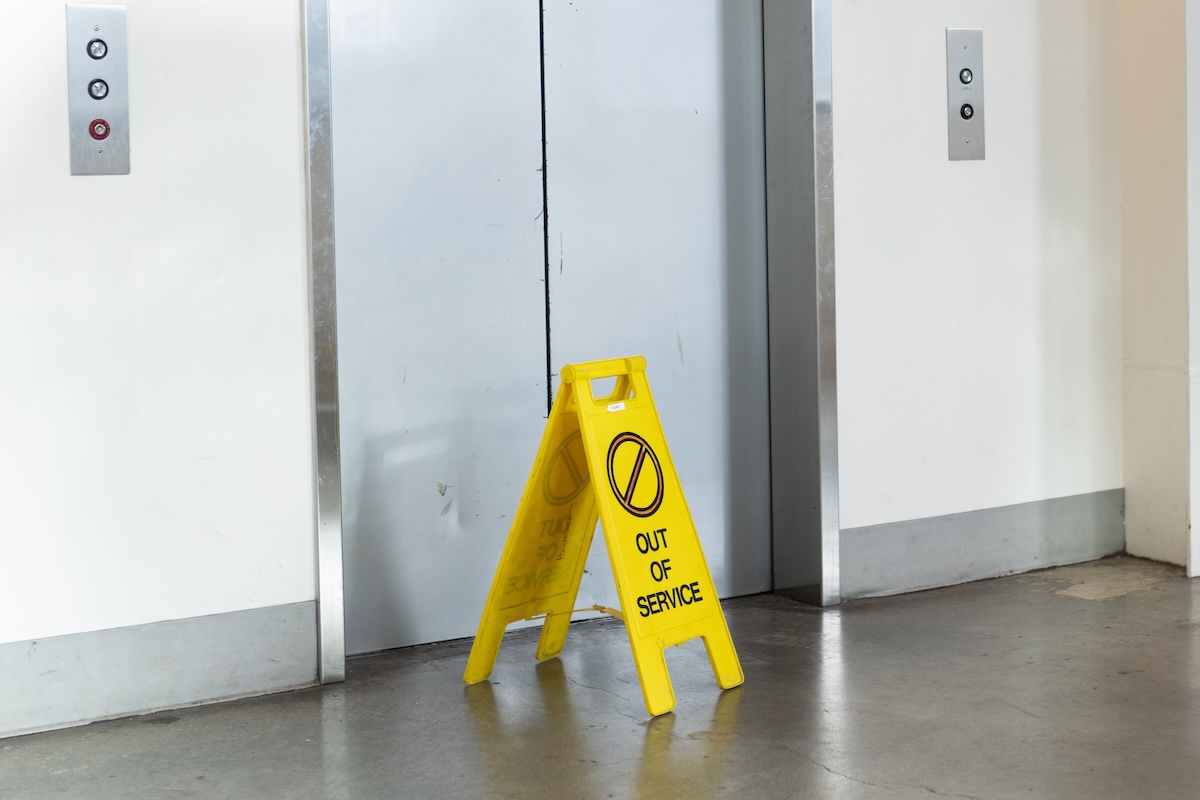
What Determines How Often an Elevator Needs Maintenance?
Age and Type of Elevator
Newer elevators with the latest technology generally require less frequent maintenance than older systems, which may have aging components more prone to wear and tear. The specific type of elevator — hydraulic, traction, freight or passenger — also plays a role. For instance, hydraulic elevators might need more care due to their susceptibility to environmental factors like underground currents and extreme temperatures, while traction elevators may require more frequent cable inspections due to their operation over longer distances and at higher speeds.
Average Daily Usage and Load of Elevator
Elevators in high-traffic environments, such as hospitals, office buildings and high-rise structures with multiple elevator banks, typically require more frequent maintenance due to significant wear and tear from constant use. Such buildings often see peak usage during morning and evening rush hours, which places additional strain on their systems, necessitating closer and more regular monitoring.
The type of load carried by the elevator also significantly impacts its maintenance needs; heavier loads, whether from more passengers or the movement of equipment and materials, can accelerate the degradation of elevator components. Elevators frequently used by elderly or disabled persons, resulting in longer periods with doors open, also experience different operational stresses that can influence maintenance schedules.
Operational Zone
The environment where an elevator operates greatly influences its maintenance needs. For instance, elevators in coastal areas face accelerated corrosion due to high humidity and salt air, requiring frequent inspections and preventative care. In colder climates, the viscosity of hydraulic fluids can be affected by extreme temperatures, making checks and adjustments necessary to ensure smooth operation.
Regions with frequent earthquakes require regular evaluations of guide rails, counterweights and suspension systems for safety. Additionally, industrial environments, such as mines with airborne particulates, can lead to quicker wear of door operators and other mechanical parts. Each condition demands a specific maintenance strategy to keep elevators running safely and efficiently.
Maintenance History
The maintenance history of an elevator provides crucial insights into its current condition and future needs. Elevators with a well-documented record of regular and effective maintenance typically require less frequent servicing. However, those with a history of neglect or significant mechanical issues may need more comprehensive inspections to establish a new performance baseline. Frequent breakdowns and safety incidents such as entrapments or past code violations can also indicate the need for more stringent and regular maintenance schedules.
Elevators that consistently receive thorough maintenance will likely enjoy longer lifespans and extended periods before major component replacements are necessary. This history helps plan maintenance interventions to ensure ongoing reliability and safety.
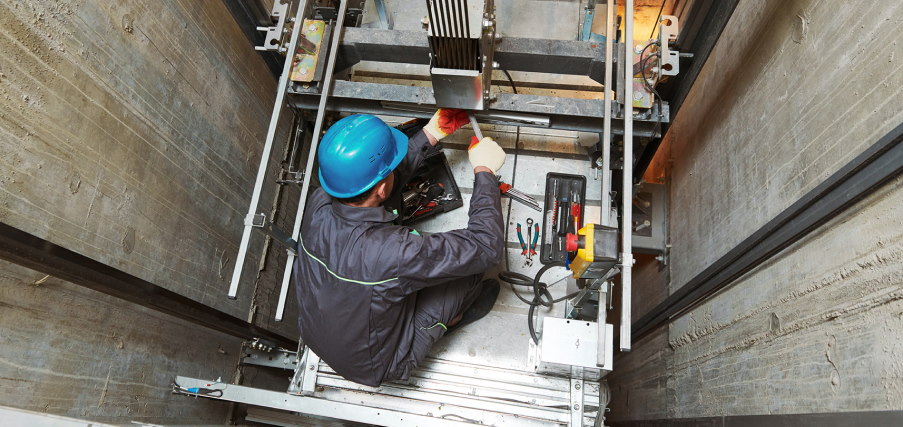
Need Elevator Maintenance, Service or Repair? Contact Elevated Today.
Maintaining your elevators is essential for ensuring your equipment’s safety, efficiency and longevity. Proper care reduces the risk of costly breakdowns, enhances user safety and adheres to regulatory standards. Choosing the right maintenance contract and knowing how often to service your elevators are key to protecting your investment and keeping operations smooth.
When considering an elevator service provider, it is crucial to choose a partner who can tailor services to your needs. Whether you need to service elevators, escalators, moving walkways or accessibility lifts, Elevated provides responsive and reliable maintenance and repairs tailored to your facility’s requirements. Contact us today to get started!


